#world reserve currency
Video
youtube
0 notes
Text
do you ever drown in your own impossible academic ambitions do you ever realize that your low bar is most people's high bar do you ever hear an axe sharpening as the deadline draws near do you ever look at a blank page and hear nothing but the sound of your internal screaming do you ever
#another essay another nervous breakdown#dw i'll be just fine#maybe once i've submitted it#is it just me who gets like this??#essays shouldn't be scary yeah??#but THIS essays due in 4 hrs#and i've been told most people can write an essay in that time#but most people arent writing about the problems with the USD as a world reserve currency and the corruption of global economic institution#so. i'm doomed basically
3 notes
·
View notes
Text
thinking about how we’re watching the decline of the US in real time
#ok objectively though and speaking as a history student this is very interesting#i’ve been saying this for months now idk why people are only saying this as well now but#at least i know it’s not just me who thinks that#but given how the the us dollar bill is like the world’s reserve currency#and for the foreseeable future that’s unlikely to change#as for internal divide though that’s definitely happening#there was the capitol attack last year and now a Lot of us citizens are campaigning for violence#at least that’s what i’m seeing on social media#as i said! it’s interesting
4 notes
·
View notes
Text




Fancy banknotes - super world currency called SUCUR, 2019 private issue, for collectors.
#private#sucur#international reserve#super currency#world#banknote#fancy#banknot#fantasy#fantazyjny#reserve#fund#nieobiegowy#kolekcjonerski#for collectors#not circulated
1 note
·
View note
Text
"On March 23, 2009, about five days after the Fed announced another round of enhanced QE, Zhou Xiaochuan, governor of the People’s Bank of China, wrote a paper for the Bank for International Settlements (BIS), the bank for global central banks, effectively calling for an end to the US dollar as the global reserve currency. The paper begins by saying,
“The outbreak of the current crisis and its spillover in the world have confronted us with a long-existing but still unanswered question, i.e., what kind of international reserve currency do we need to secure global financial stability and facilitate world economic growth, which was one of the purposes for establishing the IMF?”
If there weren’t clear cracks in the US-dominated financial world order before, they were becoming crystal clear now.
They declined to do this, and the price of oil skyrocketed.53 Said in the inverse, the dollar fell sharply against oil. The inaction and the resulting outcomes didn’t sit well with the international holders of dollars. It was now taking increasingly more of these countries’ dollar reserves, which were supposed to be safe and stable, to buy oil, and the US wasn’t stepping in to help. The US decided to manage the dollar for the short-run good of the US economy instead of managing the dollar for the good of the world as a reserve currency in the long run. Then the Great Recession financial crisis hit, and the US turned to its easy money, “quantitative easing” (QE) policies. Instead of tightening conditions with the backdrop of skyrocketing oil prices, the US central bank dropped rates to zero and started competing in the market as a buyer of Treasury securities. This again did not sit well with countries around the world.
Carol Roth, You Will Own Nothing: Your War with a New Financial World Order and How to Fight Back
#Carol Roth#You Will Own Nothing.#The New Financial World Order#Central Banks#Reserve Currency#US Dollar#China#\
0 notes
Text
The $100,000 Bill: A Glimpse into the Fascinating World of U.S. Currency
Written by Delvin
Within the vast realm of U.S. currency, there exists a hidden gem shrouded in mystery and rarity—the $100,000 bill. While many of us are familiar with the $1, $5, $10, and even $100 bills, the existence of a denomination this large may come as a surprise. Join us as we delve into the intriguing story of the $100,000 bill, its purpose, and why it remains an elusive treasure…
View On WordPress
#000 bill#000 Bill: A Glimpse into the Fascinating World of U.S. Currency#dailyprompt#Federal Reserve Bank#Financial#Financial Literacy#Money Fun Facts#The $100#US Currency
0 notes
Text
Russia's Recent Economic Warning: A Deadly Alert to Watch For
Welcome, dear readers, to our blog post where we delve into Russia’s recent economic warning and shed light on the potentially grave implications it holds. As we closely examine this pressing issue, we aim to share valuable insights and bring forth a solemn wake-up call that we ought to heed. Together, let us explore the intricate web of factors contributing to this warning and decipher the…

View On WordPress
#brics#brics bank#brics common currency#brics expansion#brics vs g7#changing world order#China dumps dollar#de-dollarization#dollar#economic news#gold#investing news#macroeconomics#petrodollar#recession#russia brics#Russia BRICS summit#russia central bank reserves#russia de-dollarization#russia de-dollarization irreversible#russia dumps dollars#russia gold reserves#sean foo#treasury dump#us dollar#US dollar dump#why gold why now#world reserve currency
0 notes
Text
We're In BIG Trouble
WE will become Venezuela
People don’t even fully understand yet what types of events are on the horizon for everything that is coming in the VERY near future! As our government is just printing money into oblivion more and more countries are abandoning the USD as the world’s reserve currency.
BRICS has just announced that it is moving away from the USD. If you’re not familiar with the acronym BRICS it is Brazil, Russia,…
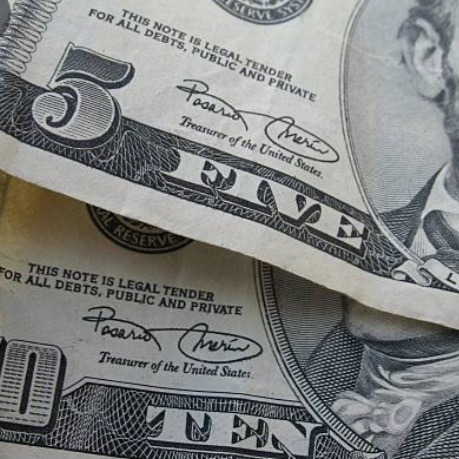
View On WordPress
0 notes
Text
god why does the US dollar have to look so ugly
look at this

its like, 3 colors with some cringe 1800s esque designs with a slave owner on the front and god on the back. why can't i have some damn color on my money
look at canada's money

it's fucking purple. i want purple money!
all i want for Christmas is cool looking money that isn't filled with bacteria, god, and slave owners
#canada can't even spell color right and they have more of it on their money#we are literally the biggest economy#and the world's reserve currency#and it looks like shit#i am in AGONY
1 note
·
View note
Note
Do you understand why Russia gave that Ultimatum to US and NATO in December 2021? It is a win-win for the Moscow-Tehran-Beijing Axis. Why do you think Putin is so happy after all those recent high-level meetings with Iran, Hamas in Moscow and China? When they win as US/NATO will capitulate in Ukraine/Europe, in the Middle East, Central Asia, South China Sea/Taiwan, having already lost Africa, Latam. BRICS will dethrone the dollar and thus democracies. That is new world order that Putin was talking about a few days ago, that will be the 21st century under dictatorships.
😱😱😱 NOT DETHRONING THE DOLLAR AS THE GLOBAL RESERVE CURRENCY 😭😭😭😭 QUICK WE NEED TO START NUCLEAR WAR TO SAVE OUR HEGEMONIC POSITION
212 notes
·
View notes
Text
Despite its protestations of progressive values, STAR TREK media has always explicitly presented (and, with only fleeting exceptions, consistently celebrated) the Federation as an expansionist imperial power, engaged in a large-scale project of colonialism.
The usual apologia/rationalization for this, both from the franchise itself and from its fans, is that the Federation is also a post-scarcity socialist utopia. However, that is expressly not the case in TOS, despite the attempts of the later series to insist otherwise.
Indeed, the plots of some of the most famous and acclaimed episodes of TOS are specifically about resource extraction and ensuring the Federation's access to crucial resources, including lithium (in "Mudd's Women"), pergium (in "The Devil in the Dark"), and dilithium (in "Mirror, Mirror," et al). We are told repeatedly that the Enterprise has a mandate to use force to secure these resources if gentler methods fail. Moreover, while the Federation has a strategic interest in these resources, it's clear at various points in TOS that their extraction and exploitation are, to a significant extent if not exclusively, overseen by private interests for profit. For instance, in "Mudd's Women," Harry Mudd remarks:
Well, girls, lithium miners. Don't you understand? Lonely, isolated, overworked, rich lithium miners! Girls, do you still want husbands, hmm? Evie, you won't be satisfied with a mere ship's captain. I'll get you a man who can buy you a whole planet. Maggie, you're going to be a countess. Ruth, I'll make you a duchess. And I, I'll be running this starship. Captain James Kirk, the next orders you're taking will be given by Harcourt Fenton Mudd!
In "The Devil in the Dark," Kirk ultimately takes a regulatory position — he will not permit the pergium miners to kill the Horta or continue to destroy her eggs — but at no point does he suggest that stopping the pergium production that threatens the Horta is a viable or even acceptable alternative. The accord he proposes is contingent on the Horta's agreement that she and her children will support the mining efforts on her planet, since Kirk emphasizes that "a dozen planets" are depending on the miners to supply needed pergium. (What would have happened to her if she hadn't agreed is not stated, but the episode strongly suggests that she would have been severely punished for noncompliance with Kirk's mediated solution: forcibly relocated to some kind of Horta reservation away from the main mining operations, perhaps.) When the Horta does agree to this proposal, Kirk assures Vanderberg, "you people are going to be embarrassingly rich," which once again suggests that while the miners may have contractual agreements to delivery pergium to Federation worlds, they are still a private, for-profit business, not a Federation department or nationalized entity.
Profit is also Ron Tracey's motivation for breaking the Prime Directive in "The Omega Glory": He believes that he's discovered a "fountain of youth" that he can own, monopolize, and exploit, and that the value of that resource will be enough to buy his way out of legal trouble for his regulatory violations.
We mostly don't see the Enterprise crew handle money except on away missions in other cultures or times, but there are a number of indications that the Federation in this era has not abandoned money: For instance, Harry Mudd's list of past offenses includes purchasing a space vessel "with counterfeit currency," while in "The Apple," Kirk rhetorically asks if Spock knows how much Starfleet has invested in him, which Spock begins to answer, "One hundred twenty-two thousand two hundred …" before Kirk cuts him off. More tellingly, in "I, Mudd," we have the following exchange:
KIRK: All right, Harry, explain. How did you get here? We left you in custody after that affair on the Rigel mining planet.
MUDD: Yes, well, I organized a technical information service bringing modern industrial techniques to backward planets, making available certain valuable patents to struggling young civilizations throughout the galaxy.
KIRK: Did you pay royalties to the owners of those patents?
MUDD: Well, actually, Kirk, as a defender of the free enterprise system, I found myself in a rather ambiguous conflict as a matter of principle.
SPOCK: He did not pay royalties.
MUDD: Knowledge, sir, should be free to all.
KIRK: Who caught you?
MUDD: That, sir, is an outrageous assumption.
KIRK: Yes. Who caught you?
MUDD: I sold the Denebians all the rights to a Vulcan fuel synthesizer.
KIRK: And the Denebians contacted the Vulcans.
Whether Deneb is a member of the Federation at this time is unclear, but Vulcan certainly is, and so we may assume that Vulcan and presumably the Federation itself are also part of "the free enterprise system."
The first indication that the Federation does not use money is in STAR TREK IV, and it's not obvious there if Kirk's remark that "They're still using money" is talking about money more broadly or just physical currency, which the Federation may have phased out even if it still uses credit or electronic transfers of monetary value. (Certainly, McCoy's attempt in STAR TREK III to charter a starship indicates that he had some means of paying for passage, since the captain of the ship specifically demands more money upon learning of the intended destination.)
If we accept at face value the assertion of TNG and DS9 that the Federation has genuinely abandoned the use of money, rather than simply going cashless, the most reasonable Watsonian explanation is that this has been a relatively recent development during the 70–80 years between the TOS cast movies and TNG, most likely related to the development of replication technology (which the Federation did not yet have in Kirk's time).
Of course, from a Doylist standpoint, we could chalk up some of this incidental dialogue to the franchise's evolving construction of its own setting, in the same manner as anomalous references to Vulcans as "Vulcanians." Roddenberry and his apologists might also insist that he always meant to depict a socialist utopia, but was prevented by the nattering nabobs of negativity (i.e., the network's BS&P); I'm very skeptical of such claims, but the writers were acutely aware that depicting what Earth is like in Kirk's time would be opening a can of worms, which is why we didn't actually see 23rd century Earth (even briefly) until the movies.
However, the focus on resource extraction and its ramifications is such a load-bearing story element in TOS that the revisionist assertion that the Federation was already a post-scarcity socialist utopia in Kirk's time (as both DISCOVERY and STRANGE NEW WORLDS have attempted to claim) would require really substantial retcons of the original show, perhaps to the extent of insisting that some of those events never took place at all, or happened radically differently than what's in the TOS episodes most STAR TREK fans have seen. For me, anyway, that crosses a line from willing suspension of disbelief to "don't trust your lying eyes," and suggests a frustrating and somewhat disturbing determination to insist that TOS is something much purer and nobler than it is rather than grapple with its actual conceptual flaws and ideological shortcomings.
#teevee#star trek#star trek tos#james t kirk#harcourt fenton mudd#spock#gene roddenberry#i love tos -- truly -- but it doesn't claim to depict a utopia#and its hypocrisies and moral failings are substantial#i am very disgruntled by strange new worlds and discovery#because they clearly WANT to redo tos#but rather than rebooting it to align with their current vision#they've opted for this revisionist death-by-a-thousand-retcons approach
149 notes
·
View notes
Video
youtube
Is Crypto Really Going To Crash? (Yes)
Crypto is going to crash and could take your savings with it.
In June 2022, Bitcoin dropped over 30 percent to its lowest values since December 2020, and Ethereum, the second-most valuable cryptocurrency, fell about 35 percent. TerraUSD, a so-called “stablecoin,” also collapsed when its underlying cryptocurrency LUNA lost 97 percent of its value in just 24 hours, apparently destroying some investors’ life savings. The implosion helped trigger a crypto meltdown that erased $300 billion in value across the market.
As cryptocurrency prices plummeted, Celsius Network — an experimental cryptocurrency lender — announced it was freezing withdrawals “due to extreme market conditions.”
These crypto crashes and freezes have fueled worries that the complex crypto banking and lending system is on the brink of ruin.
But this crash shouldn’t surprise anyone familiar with the industry – or anyone who remembers the financial crashes of 1929 and 2008.
Let me explain.
In the murky world of crypto decentralized finance, known as DeFi, it’s hard to understand who provides money for loans, where the money flows, or how easy it is to trigger currency meltdowns.
There are no standards for issues of custody, risk management, or capital reserves. There are no transparency requirements. Investors often don’t know how their money is being handled. Deposits are not insured.
It’s a Ponzi scheme. Like all Ponzi schemes, getting rich depends on how many other investors follow you into it – until somebody’s left holding the worthless crypto coin.
Why isn’t this market regulated? Follow the money.
The crypto industry is pouring huge amounts into political campaigns. It has hired scores of former government officials and regulators to lobby on its behalf — including three former chairs of the Securities and Exchange Commission, three former chairs of the Commodity Futures Trading Commission, three former U.S. senators, and even former Treasury Secretary Larry Summers.
In the past, cryptocurrencies kept rising by attracting new investors and big Wall Street money, along with celebrity endorsements. But all Ponzi schemes topple eventually – just like the Wild West finances of the 1920s did.
Back then, Americans had been getting rich by speculating on shares of stock, as other investors followed them into these risky assets — pushing their values ever upwards. When the toppling occurred in 1929, it plunged the nation and the world into the Great Depression.
That crash resulted in the Glass-Steagall Act, signed into law by Franklin D. Roosevelt in 1933. Glass-Steagall separated commercial banking from investment banking, putting an end to the giant Ponzi scheme that had overtaken the American economy and led to the Great Crash of 1929.
It took a full generation to forget that crash and allow the forces that caused it to repeat their havoc.
By the mid-1980s, as the stock market soared, speculators noticed they could make even more money if they gambled with other people’s money, as speculators did in the 1920s. They pushed Congress to deregulate Wall Street, arguing that the United States financial sector would otherwise lose its competitive standing internationally.
The final blow was in 1999, when the Clinton administration succumbed to intensive lobbying and ditched what remained of Glass-Steagall. With its repeal, American finance once again became a betting parlor.
Inevitably, Wall Street suffered another near-death experience when its Ponzi schemes began toppling in 2008, just as they had in 1929. While the U.S. government bailed out the biggest banks and financial institutions, millions of Americans lost their jobs, their savings, and their homes – but only a single banking executive went to jail. In the wake of the 2008 financial crisis, a new but watered-down version of Glass-Steagall was enacted — the Dodd-Frank Act.
Which brings us — nearly a century after Glass-Steagall — to today’s crypto crash.
If we should have learned anything from the crashes of 1929 and 2008, it’s that regulation of financial markets is essential. Otherwise they turn into Ponzi schemes — leaving small investors with nothing and endangering the entire economy.
It’s time for the Biden administration and Congress to end the crypto Ponzi scheme.
In the meantime, share this video so your friends and family don’t fall for it.
2K notes
·
View notes
Text
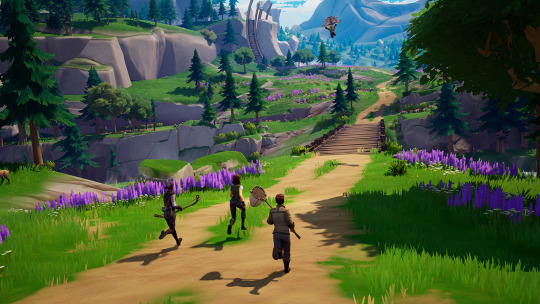
Shouting into the Void about Palia, which has begun its open beta.
Palia is a "cozy sim MMO set in a fantasy world", as pitched by the developers at Singularity Six. If I had to set it up in one sentence, I would pitch it as something like "what if an MMO didn't need to have combat?"
Which is something I'm really excited about.
To clarify, I think the MMO term is slightly misleading. When you log on, you're sent to an instance of around 25 players or so, similar to how Sea of Thieves works. For what it's worth, I think this is actually a preferable experience versus being a "true MMO" with hundreds of people crowding around the town area. I think they made the right call.
Although I have some small critiques and some reservations about recommending Palia during its open beta state, I'm having a really fun, relaxing time and I'm really looking forward to how the game grows. Full thoughts below.
---
I'm sure people will be quick to compare Palia to Stardew Valley and Animal Crossing. This is valid, and probably something the developer wants you to do. Like those games, Palia is about relaxing and having a good time in a simple town with charming NPCs.
That said, I think the closest analogs to how Palia works are actually Disney Dreamlight Valley and Yonder: The Cloud Catcher Chronicles. Dreamlight Valley I think is the most direct competition, so to speak. It's funny to see that another developer got to the multiplayer pie before Disney's teams were able to fully add multiplayer, lol.
In Palia, you dress up your character and you customize your home. I think the art is really great, and the animation has really impressed me. There's a great variety of outfits (although to be clear, 30% of clothing options are available from the start and the other 70% is, for now, premium currency only.) There's unfortunately only 2 choices of body type in the Open Beta, although the devs claim that more are coming.
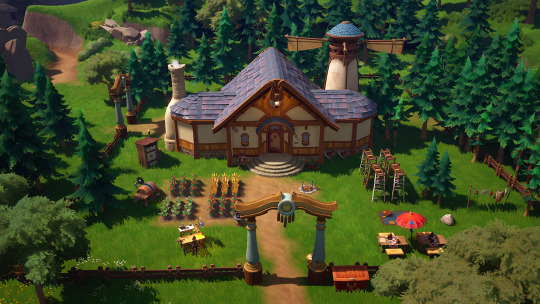
There's a shocking amount of customization for your house and your lawn. At least, picture Animal Crossing: New Horizons but with better controls for dragging and dropping where you want everything. People who like setting up their plot of land will have a good time. You can even expand your property to make it larger.
The core of Palia's loop involves you hopping around between progressing the Main Story and progressing 8 different skills: Cooking, Hunting, Bug Catching, Gardening, Foraging, Fishing, Furniture Making, and Mining. In addition to this, you're progressing your friendship meter with the different NPCs and, if you'd like, selecting one to Romance.
There's some really smart innovations in Palia that I like.
For example, your Mining skill only increases when you PICK UP the ore loot that drops from destroying a vein of ore. Why is that? Because you're supposed to work together with friends and strangers. If the skill increased for each time your pickaxe struck the vein, then you'd get annoyed if your friend helped you, because working together would destroy the vein in less strikes. If the skill increased for destroying a vein, then only the person who got the "last hit" would reap the exp reward. In Palia, so long as a player strikes the vein at least once, the loot will drop for them when it's destroyed. This way, anyone around you can "get their hand on that ball" by helping strike the vein at least once. This encourages working together, sharing the loot, etc. The same goes for chopping trees: anyone who contributes at all will get the wood that drops. This naturally encourages people to work together. There's no reason not to, because you're not "stealing" the loot from anyone else or "stealing" the exp.
Cooking is the most fleshed out co-op experience from what I've seen. Recipes require ingredients and a stove or prep station. Then, when you start the recipe, you do minigames to chop ingredients and stir them. So long as any player contributes an ingredient or does one of the minigames, they get the full exp and the finished dishes from cooking, even if that contributing player doesn't have the recipe. So if your friend loves cooking, and has a bunch of recipes, they can initiate the cooking and then you can bring the mushrooms and do the chopping. Then you all get to level up and get the dishes.
Even activities like Fishing are more fun to do together. If you fish near someone else who's fishing, you'll both get a buff that makes the fish bite your hooks much sooner. It stacks higher the more you fish together.
Another smart innovation: a rework of the infamous "stamina meter." This time, it's a Focus Meter. If your Focus Meter drops to 0, nothing happens. You don't pass out, you don't starve, nothing. However, if you DO have Focus, you get a Exp Gain Multiplier. This encourages you eating dishes to stay well-fed without punishing you too strongly if you ignore it.
And then, lastly, the core conceit of the game: there's no combat or danger. Although there is a Hunting Mechanic, it's completely one-sided, like hunting deer (which the game is quick to tell you are overpopulated in the area.) You can't die, you can't get hurt, you don't take fall damage, you don't even have health, period. I think this is great at trimming the unnecessary parts of a game like this and keeping it truly relaxing.
Although I'm having a fun time, I can't wholly recommend the open beta of Palia for everyone. The game is still early in its life and is missing a lot of important UI/UX and central features. The Pause and Settings menus are pretty sparse. You can only have 1 character so far, there aren't multiple character slots. You can't even change your characters name once you've made it, so choose carefully. In addition, you might feel like there "isn't enough to do together" if you play with friends, which is similar to a complaint I have about Animal Crossing multiplayer. It's mostly a chill hangout game about fishing next to each other.
There are a lot of things in the game that still need to be fleshed out, but I'm really happy with the core structure they've set up. Once this game leaves Open Beta, I think it'll be an easier recommendation, especially for folks who have enjoyed Disney Dreamlight Valley. I think these devs are smart about how they're handling the core desire here: wanting to play a game like Final Fantasy XIV or Stardew Valley without having to worry about combat or stamina.
My partner and I love to play these relaxing zone-out types of games. While trying Atelier Ryza recently, my partner said: "I just want a game where you zone-out and pick stuff up off the ground." My friends, we finally found it. It's called Palia.
You can find the Palia Open Beta on PC, and the game is slated to release on Nintendo Switch.
173 notes
·
View notes
Note
Do you agree with Gaming Journalists and what do you think of gaming journalism in general?
What does this even mean, dude.
"Do you agree with gaming journalists"? On what?
Do I agree with Shacknews that Super Mario Bros. Wonder is a 10/10, and with Digital Spy that it's also a 7/10? Do I agree with Let's Clear Up Those Halo Battle Royale Rumors?
Like, I've gotten some bait on this blog before, but this is 2/10 stuff, man. This is some hot 2014 garbage. Like no matter what I say, you're gonna go all
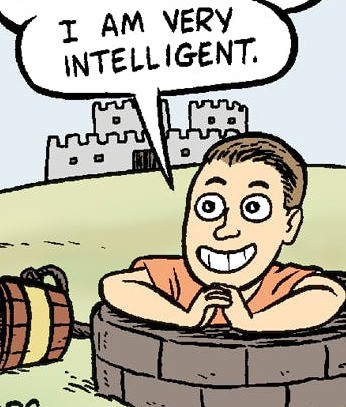
"Very interesting. Then do you care to explain why..." No thanks.
My real answer: Something I learned during my time at TSSZ and being around a few people who were deeper into "the biz" than I is that everybody needs journalism more than they realize. Corporations are pushing for consumers to become their personal cheerleaders more than ever before, which makes criticism and the journalistic exposing of information seem villainous.
After all: Xbox is my friend now, so how dare you attack the Xbox. Behavior that used to be reserved for the most dedicated fanboys is now the expected room temperature. I've talked about "The Cult of Naughty Dog" before, and that's the same thing. If a corporation can get you to be parasocial with them, then they have won, and being parasocial with a corporation means shunning real investigative journalism that would otherwise undo them. Journalists and critics used to be marketing tools, but by undoing the press pipeline and talking directly to fans, journalists and critics are painted as untrustworthy for being wildcards that don't always toe the company line.
And there has been more than a decade of people with a "I choose to be stupid and ignorant on purpose" outlook, which just makes that more frustrating. We've all seen screencaps where some brainless rando tries to explain something to a person who is an expert in that field. The rando thinks they're flexing their brain, but in some cases they are arguing with the person who literally wrote the book on their topic of conversation. Some people don't want to know anything but still pretend like they know everything, when there are real people out there doing real work to uncover real truths.
Misinformation is the real problem. It should not surprise anyone that there are people out there deliberately eroding the foundation of journalistic integrity, because the less people trust journalism, the easier it is to get away with lying. The easier it is to lie, the easier it is to control the mainstream, the easier it is to scam people out of their money, so on and so forth.
And misinformation is more than just "this one news article is fake." There are long running campaigns to install people into news organizations themselves to publish false information for all manner of different goals, but it's all the same: nobody trusts anyone and it's making everyone dumber.
That's when we get crypto currency. And NFTs. And now people claiming that generative AI will save humanity. Grift after grift after grift where the people at the top of the snake oil food chain make off with billions of dollars while the rest of the world is left scratching their heads.
The law isn't going to catch them. If they do, it'll take years. Look at how long it took for Sam Bankman-Fried to get caught -- he operated for almost half an entire decade. The amount of damage somebody can get away with in five years is significant.
We need journalism. Real journalism. Good journalism. Watchdogs that keep an eye on things and blow the whistle when it goes bad. Somebody to enforce accountability that isn't a cop.
Where do you find that? That's the hardest question. I'm lucky enough that I know people I trust because they are long time friends, or friends of friends, and thus they've been properly vetted in my circle as The Real Deal. But there are a lot of outlets out there who claim to champion "truth" and "intelligence" in a way to prey upon insecurity. I mean, c'mon, Trump's social media platform is called "Truth Social" and is basically the furthest thing from the truth you will ever get from anyone, ever.
The more obsessively they try to convince you they're telling the truth, the less likely it is they actually are. Which in itself could be an attack meant to undo the foundations of trust in people who actually know what they're talking about. By casting doubt on the very concept of truth itself, they can lie with increasingly greater efficiency.
Any advice I give feels like it is incredibly circumstantial. Which is the point, and is why we're in the state we're in.
Here's a good pdf by The News Literacy Project that's probably a good place to start. The general gist is "you'll have to do a lot of fact checking for yourself" but that's unfortunately where we're at these days.
But by and large I would say life is a lot harder for real journalists right now than I think some of their critics have ever thought about. There are people out there trying to do actual good work and being a bubble-brained moron about it just makes everything harder for everyone.
60 notes
·
View notes
Note
do you know of any solo-player crafting / designing games? like a witch making posions or someone building a cottage? the dream is a pen and paper solo-player architecture design game. or exploration/scavenging??
THEME: Crafting and Exploration
Hello friend, I selected some games that try to fit as many of the different prompts you are looking for here. Nothing fits everything, but everything fits something.
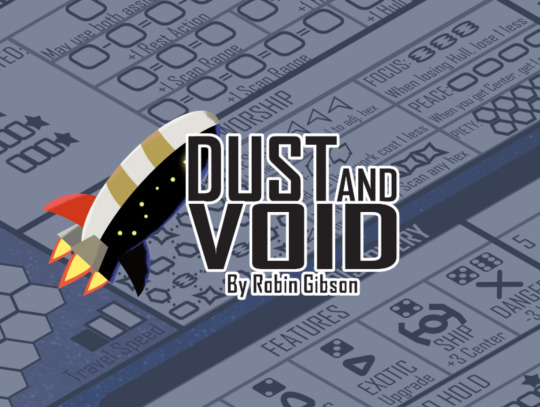
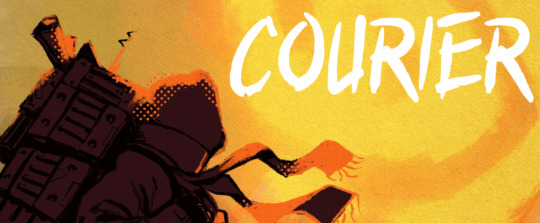

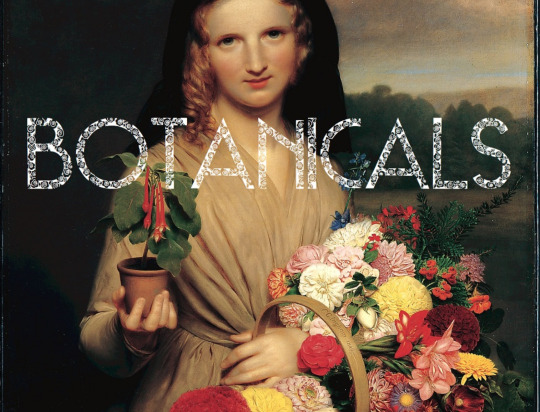


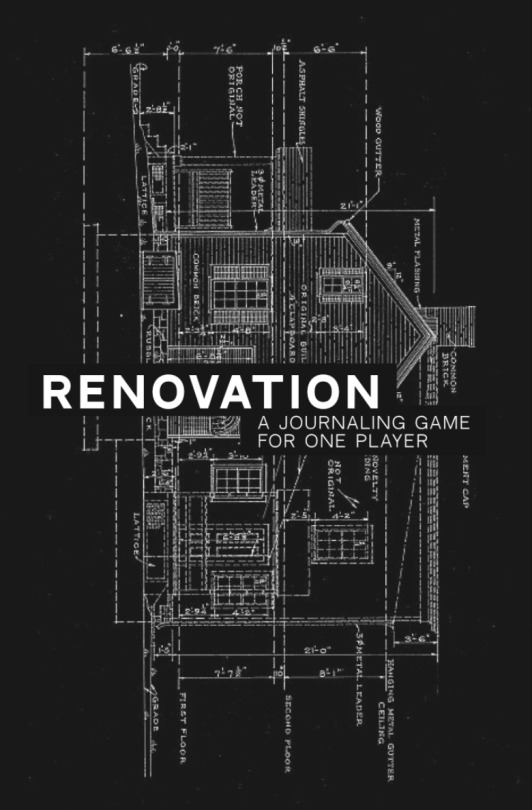

Dust and Void, by Robin Gibson.
The last remnants of humanity reside on Cathedral, a space-faring city, on its centuries-long mission to find a new home. Cathedral relies on spacecraft designed for deep space scavenging for vital resources.
In Dust and Void, players take on the role of these pilots. Players will explore the depths of space, look for resources, avoid dangers, and balance work, well-being and worship to make a name for themselves and build a legacy. Can you bring in enough to see humanity to a brighter tomorrow, and also to stay in the relative comfort of deep space?
This looks like a game that balances multiple characters, but is still designed for one person. It also appears to be a balancing game, so I’d expect being required to fulfill multiple objectives without depleting energy reserves or resources. If you want a game with high stakes and strategic options, you might want to check out Dust and Void.
Courier, by Sleepy Sasquatch Games.
Courier is a solo-RPG where you take control of a Courier—someone who travels the Wasteland delivering and trading cargo in exchange for REP, the currency of this post-apocalyptic future. As you explore the world around you, locations and factions are revealed and recorded on your map.
Choose to take jobs for factions and build reputation to access new benefits all while becoming better at your job and earning new character perks.
Courier is a highly structured game that focuses on exploration and salvage, leading your character through locations and various encounters, including Combat, Trade, and salvaging cargo. You work towards completing quests, earning money, and upgrading your reputation. Courier is probably the most like a traditional ttrpg in this list, and is great if you want to play a game but don’t want to be responsible for creating the world around you.
Guillotine Earrings, by Ella Watts.
You are a magical jeweller in a city on the brink of revolution. A solo RPG.
Guillotine Earrings is a magical journalling game on two pages. Your character is a jeweller living in a city on the brink of revolution, held in the grip of a cruel and despotic tyrant. Over the course of the game, you describe and draw the jewellery they make as they attempt to fan the flames of protest in the city with their art. You also describe the parties they attend, the allies they find, and the communities they enlist as they start a revolution behind the unlikely barricade of their storefront.
It's up to you to decide which you prefer - or to play the game more than once, creating different people in different cities as they try to rise up against their oppressors.
This game is intriguing to me because while your character is responsible for making items, you’re also crafting a revolution. Your decisions throughout the game will determine whether you’ll have a better chance to improve your art or improve your revolution’s odds through persuasive checks - recruiting for the cause, making powerful allies, and improving your network. There’s also optional rules for a jenga tower or a pool of jewelry, if you want to heighten the tension and increase the randomness of your results. If you want a game where your character occupies a niche in society that gives them the ability to cause great changes in the world around them, I’d recommend Guillotine Earrings.
Botanicals, by Ben K Rosenbloom.
A game for making potions to solve peoples' problems.
For one or more players. You will need some flowers, spices, maybe some bottles or cups, and anything else you want to throw in a potion.
This game can be played solo, although it also has instructions for higher player counts. This game might even work as a single-person larp, as it recommends creating your potions and determining their effects based on their colour and scent. The crafting of this game is more literal than it is theoretical, and it is likely to require some cleanup afterwards, so if what you are looking for is something immersive, this might be a good option. If you’re looking for mechanical crunch, you might want to look somewhere else.
Salvager, by TEU Games.
Collect salvage from wrecked space ships. You will gain in power and equipment. If you live long enough, retire to a life of luxury.
This is another exploration game that brings you across a hexmap as you look for salvage. The game fits on 2 pages, but is full of descriptions of what you find inside the ships, as well as roll-tables determining what your retirement looks like depending on how many credits you save. Just be warned - if you duck out of a job before it’s done, you risk losing money and also retiring in disgrace!
Bad Bad Brew, by CABBAGEHEAD.
BAD BAD BREW features a colourful trifold spread with all the rules and inspiration you need to brew your next potion. It includes all the instructions, several tables for ingredients and side effects, and your Alchemist's Tools to easily change its properties.
The game is designed to be accessible, easy to play and highly replayable. All you need is one six-sided die, writing tools and some creativity to start playing. The average session can be last from 10 minutes to as long as you want.
This is another game that has some tactile components to it, asking you to literally brew some of your concoctions. The game also expects your character to not always get the recipe right - and when that happens, expect a number of interesting side-effects. The game also suggests porting your creations into group sessions - perhaps something that your character made gets sold to an adventuring party! If you want something that can be played quickly, with many possible uses, check out this game.
Renovation, by kay w.
Renovation is a solo journaling game about a house. Whether or not the house is haunted depends on your definition of a haunting. In this game, you play as the house, old and worn, full of many memories and perhaps even ghosts. A new owner has come to renovate.
You do not wish for the renovation, but it comes regardless.
This is a story in which the architecture of a house is a form of resistance - and the new creation that you turn into at the end of the game is a horror, not an accomplishment. This is the closest I could find to an architecture game, using a deck of cards to determine what element of your house is changed. If your foundation crumbles, you are no longer the house you once were. This game certainly isn’t for everyone, but if you’re interested in a horror take on a game, this might be worth taking a peek at.
Masterpiece, by LordPaido.
It was on my walk home from the store when I saw it. A bird floating through the air, barely flapping its wings. At once, ideas began clamoring for attention; moving without movement as the theme for a new poem! But my masterpiece could also use such an allegory, although it might take more editing to make work….I'm so close, and yet, I feel so much further than when I started….just a few days more, and it should be complete.
Masterpiece is a solo GM-less journaling game about the creative process and what goes into making a truly unique work of art. Maintain your inspiration as you draw on the influences of the world around you, past, present, and future. Strive to remain focused and not grow distracted by lesser works. Weather whatever storms the outside world and your inner landscape throw at you – and see if you have what it takes to reach your full potential.
This game lists architecture as one of the forms of art you could use in your creative process. The game depends on a deck of cards, which you draw from to navigate your ideas, as well as tokens, which you use to track your character’s inspiration. Every “day”, you draw and place a card, and then interpret your progress into a journal entry. Sometimes you might draw an idea for a lesser work, which is mean to replicate how artists often have more ideas than time to complete them. The game might end with a finished Masterwork, but it might not! Out of all of the games I looked at, this is probably the most suited to the architecture prompt you listed. I hope you find it interesting!
Games I’ve Recommended Before
Grimoire, by Anna Landin.
Exclusion Zone Botanist, by William Rose.
94 notes
·
View notes
Text

Supreme Court poised to appoint federal judges to run the US economy.
January 18, 2024
ROBERT B. HUBBELL
JAN 17, 2024
The Supreme Court heard oral argument on two cases that provide the Court with the opportunity to overturn the “Chevron deference doctrine.” Based on comments from the Justices, it seems likely that the justices will overturn judicial precedent that has been settled for forty years. If they do, their decision will reshape the balance of power between the three branches of government by appointing federal judges as regulators of the world’s largest economy, supplanting the expertise of federal agencies (a.k.a. the “administrative state”).
Although the Chevron doctrine seems like an arcane area of the law, it strikes at the heart of the US economy. If the Court were to invalidate the doctrine, it would do so in service of the conservative billionaires who have bought and paid for four of the justices on the Court. The losers would be the American people, who rely on the expertise of federal regulators to protect their water, food, working conditions, financial systems, public markets, transportation, product safety, health care services, and more.
The potential overruling of the Chevron doctrine is a proxy for a broader effort by the reactionary majority to pare the power of the executive branch and Congress while empowering the courts. Let’s take a moment to examine the context of that effort.
But I will not bury the lead (or the lede): The reactionary majority on the Court is out of control. In disregarding precedent that conflicts with the conservative legal agenda of its Federalist Society overlords, the Court is acting in a lawless manner. It is squandering hard-earned legitimacy. It is time to expand the Court—the only solution that requires a simple majority in two chambers of Congress and the signature of the president.
The “administrative state” sounds bad. Is it?
No. The administrative state is good. It refers to the collective body of federal employees, regulators, and experts who help maintain an orderly US economy. Conservatives use the term “administrative state” to denigrate federal regulation and expertise. They want corporations to operate free of all federal restraint—free to pollute, free to defraud, free to impose dangerous and unfair working conditions, free to release dangerous products into the marketplace, and free to engage in deceptive practices in public markets.
The US economy is the largest, most robust economy in the world because federal regulators impose standards for safety, honesty, transparency, and accountability. Not only is the US economy the largest in the world (as measured by nominal GDP), but its GDP per capita ($76,398) overshadows that of the second largest economy, China ($12,270). The US dollar is the reserve currency for the world and its markets are a haven for foreign investment and capital formation. See The Top 25 Economies in the World (investopedia.com)
US consumers, banks, investment firms, and foreign investors are attracted to the US economy because it is regulated. US corporations want all the benefits of regulations—until regulations get in the way of making more money. It is at that point that the “administrative state” is seen as “the enemy” by conservatives who value profit maximization above human health, safety, and solvency.
It is difficult to comprehend how big the US economy is. To paraphrase Douglas Adams’s quote about space, “It’s big. Really big. You just won't believe how vastly, hugely, mindbogglingly big it is.” Suffice to say, the US economy is so big it cannot be regulated by several hundred federal judges with dockets filled with criminal cases and major business disputes.
Nor can Congress pass enough legislation to keep pace with ever changing technological and financial developments. Congress can’t pass a budget on time; the notion that it would be able to keep up with regulations necessary to regulate Bitcoin trading in public markets is risible.
What is the Chevron deference doctrine?
Managing the US economy requires hundreds of thousands of subject matter experts—a.k.a. “regulators”—who bring order, transparency, and honesty to the US economy. Those experts must make millions of judgments each year in creating, implementing and applying federal regulations.
And this is where the “Chevron deference doctrine” comes in. When federal experts and regulators interpret federal regulations in esoteric areas such as maintaining healthy fisheries, their decisions should be entitled to a certain amount of deference. And they have received such deference since 1984, when the US Supreme Court created a rule of judicial deference to decisions by federal regulators in the case of Chevron v. NRDC.
What happened at oral argument?
In a pair of cases, the US Supreme Court heard argument on Tuesday as to whether the Chevron deference doctrine should continue—or whether the Court should overturn the doctrine and effectively throw out 17,000 federal court decisions applying the doctrine. According to Court observers, including Mark Joseph Stern of Slate, the answer is “Yes, the Court is poised to appoint federal judges as regulators of the US economy.” See Mark Joseph Stern in Slate, The Supreme Court is seizing more power from Democratic presidents. (slate.com)
I recommend Stern’s article for a description of the grim atmosphere at the oral argument—kind of “pre-demise” wake for the Chevron deference doctrine. Stern does a superb job of explaining the effects of overruling Chevron:
Here’s the bottom line: Without Chevron deference, it’ll be open season on each and every regulation, with underinformed courts playing pretend scientist, economist, and policymaker all at once. Securities fraud, banking secrecy, mercury pollution, asylum applications, health care funding, plus all manner of civil rights laws: They are ultravulnerable to judicial attack in Chevron’s absence. That’s why the medical establishment has lined up in support of Chevron, explaining that its demise would mark a “tremendous disruption” for patients and providers; just rinse and repeat for every other area of law to see the convulsive disruptions on the horizon.
The Kochs and the Federalist Society have bought and paid for this sad outcome. The chaos that will follow will hurt consumers, travelers, investors, patients and—ultimately—American businesses, who will no longer be able to rely on federal regulators for guidance as to the meaning of federal regulations. Instead, businesses will get an answer to their questions after lengthy, expensive litigation before overworked and ill-prepared judges implement a political agenda.
Expand the Court. Disband the reactionary majority by relegating it to an irrelevant minority. If we win control of both chambers of Congress in 2024 and reelect Joe Biden, expanding the Court should be the first order of business.
[Robert B. Hubbell Newsletter]
#Corrupt SCOTUS#Robert B. Hubbell#Robert b. Hubbell Newsletter#Expand the Court#Chevron deference#regulatory agencies#consumer protection#government by Federalist Society
77 notes
·
View notes